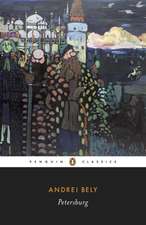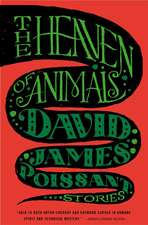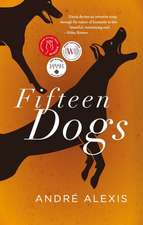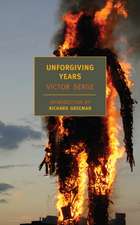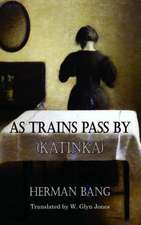Envy: New York Review Books Classics
Autor Yuri Olesha Traducere de Marain Schwartzen Limba Engleză Paperback – 2 ian 2004
One of the delights of Russian literature, a tour de force that has been compared to the best of Nabokov and Bulgakov, Yuri Olesha's novella Envy brings together cutting social satire, slapstick humor, and a wild visionary streak. Andrei is a model Soviet citizen, a swaggeringly self-satisfied mogul of the food industry who intends to revolutionize modern life with mass-produced sausage. Nikolai is a loser. Finding him drunk in the gutter, Andrei gives him a bed for the night and a job as a gofer. Nikolai takes what he can, but that doesn't mean he's grateful. Griping, sulking, grovelingly abject, he despises everything Andrei believes in, even if he envies him his every breath.
Producer and sponger, insider and outcast, master and man fight back and forth in the pages of Olesha's anarchic comedy. It is a contest of wills in which nothing is sure except the incorrigible human heart.
Marian Schwartz's new English translation of Envy brilliantly captures the energy of Olesha's masterpiece.
Din seria New York Review Books Classics
-
 Preț: 88.86 lei
Preț: 88.86 lei -
 Preț: 99.24 lei
Preț: 99.24 lei - 16%
 Preț: 79.25 lei
Preț: 79.25 lei -
 Preț: 77.73 lei
Preț: 77.73 lei -
 Preț: 124.55 lei
Preț: 124.55 lei -
 Preț: 85.16 lei
Preț: 85.16 lei -
 Preț: 83.30 lei
Preț: 83.30 lei -
 Preț: 182.08 lei
Preț: 182.08 lei -
 Preț: 102.47 lei
Preț: 102.47 lei -
 Preț: 76.46 lei
Preț: 76.46 lei -
 Preț: 174.64 lei
Preț: 174.64 lei -
 Preț: 110.73 lei
Preț: 110.73 lei -
 Preț: 119.57 lei
Preț: 119.57 lei -
 Preț: 94.01 lei
Preț: 94.01 lei -
 Preț: 96.42 lei
Preț: 96.42 lei -
 Preț: 101.24 lei
Preț: 101.24 lei -
 Preț: 85.97 lei
Preț: 85.97 lei -
 Preț: 142.67 lei
Preț: 142.67 lei -
 Preț: 102.25 lei
Preț: 102.25 lei -
 Preț: 103.29 lei
Preț: 103.29 lei -
 Preț: 113.30 lei
Preț: 113.30 lei -
 Preț: 100.59 lei
Preț: 100.59 lei -
 Preț: 126.41 lei
Preț: 126.41 lei -
 Preț: 107.40 lei
Preț: 107.40 lei -
 Preț: 174.03 lei
Preț: 174.03 lei -
 Preț: 107.44 lei
Preț: 107.44 lei -
 Preț: 89.27 lei
Preț: 89.27 lei -
 Preț: 85.34 lei
Preț: 85.34 lei -
 Preț: 90.09 lei
Preț: 90.09 lei -
 Preț: 87.20 lei
Preț: 87.20 lei -
 Preț: 99.60 lei
Preț: 99.60 lei -
 Preț: 119.36 lei
Preț: 119.36 lei -
 Preț: 98.73 lei
Preț: 98.73 lei -
 Preț: 133.18 lei
Preț: 133.18 lei -
 Preț: 136.91 lei
Preț: 136.91 lei -
 Preț: 105.17 lei
Preț: 105.17 lei -
 Preț: 161.86 lei
Preț: 161.86 lei -
 Preț: 90.72 lei
Preț: 90.72 lei -
 Preț: 88.86 lei
Preț: 88.86 lei -
 Preț: 94.83 lei
Preț: 94.83 lei -
 Preț: 123.08 lei
Preț: 123.08 lei -
 Preț: 111.96 lei
Preț: 111.96 lei -
 Preț: 95.45 lei
Preț: 95.45 lei -
 Preț: 97.50 lei
Preț: 97.50 lei -
 Preț: 109.26 lei
Preț: 109.26 lei -
 Preț: 81.66 lei
Preț: 81.66 lei -
 Preț: 100.18 lei
Preț: 100.18 lei -
 Preț: 75.23 lei
Preț: 75.23 lei -
 Preț: 91.13 lei
Preț: 91.13 lei -
 Preț: 94.86 lei
Preț: 94.86 lei
Preț: 83.87 lei
Nou
Puncte Express: 126
Preț estimativ în valută:
16.05€ • 16.69$ • 13.43£
16.05€ • 16.69$ • 13.43£
Carte disponibilă
Livrare economică 22 februarie-08 martie
Livrare express 08-14 februarie pentru 27.16 lei
Preluare comenzi: 021 569.72.76
Specificații
ISBN-13: 9781590170861
ISBN-10: 1590170865
Pagini: 152
Ilustrații: Illustrations
Dimensiuni: 126 x 203 x 10 mm
Greutate: 0.18 kg
Editura: NEW YORK REVIEW OF BOOKS
Seria New York Review Books Classics
Locul publicării:United States
ISBN-10: 1590170865
Pagini: 152
Ilustrații: Illustrations
Dimensiuni: 126 x 203 x 10 mm
Greutate: 0.18 kg
Editura: NEW YORK REVIEW OF BOOKS
Seria New York Review Books Classics
Locul publicării:United States
Recenzii
Olesha wrote only one novel, Envy. The book was published in 1927, 10 years after the Bolshevik Revolution and a few years before the net of socialist realism fell on Russian writers….The narrative is driven by the narrator’s bitter, poetic commentary on the world. The characters represent, loosely, aspects of the new Soviet ethos. Vladimir Nabokov had a low opinion of almost everything produced in Russia after his departure, but he admired Olesha’s writing.
— Columbus Dispatch
In his best fiction, the short novel Envy, Olesha writes about the clash of two worlds, but with a wry, half-defeated yet touchingly affectionate irony that seems entirely his own.
— Irving Howe, Harper’s
Olesha’s stories are supreme and timeless cinema. To read his triumphant short novel Envy is to see it, to find the pages transformed into a screen on which to behold man’s heroic confrontation with the monsters of his own creation…Every page of Olesha demands to be read and seen again.
— The New York Times
— Columbus Dispatch
In his best fiction, the short novel Envy, Olesha writes about the clash of two worlds, but with a wry, half-defeated yet touchingly affectionate irony that seems entirely his own.
— Irving Howe, Harper’s
Olesha’s stories are supreme and timeless cinema. To read his triumphant short novel Envy is to see it, to find the pages transformed into a screen on which to behold man’s heroic confrontation with the monsters of his own creation…Every page of Olesha demands to be read and seen again.
— The New York Times
Notă biografică
Yuri Olesha (1899ߝ1960), the son of an impoverished land-owner who spent his days playing cards, grew up in Odessa, a lively multicultural city whose literary scene also included Isaac Babel. Olesha made his name as a writer with Three Fat Men, a proletarian fairy tale, and had an even greater success with Envyin 1927. Soon, however, the ambiguous nature of the novella’s depiction of the new revolutionary era led to complaints from high, followed by the collapse of his career and the disappearance of his books. In 1934, Olesha addressed the First Congress of Soviet Writers, arguing that a writer should be allowed the freedom to choose his own style and themes. For the rest of his life he wrote very little. A memoir of his youth, No Day Without a Line, appeared posthumously.
Ken Kalfus’s most recent book is a novel, The Commissariat of Enlightenment. He is also the author of two short story collections, Thirst and Pu-239 and Other Russian Fantasies.
Marian Schwartz has been translating Russian fiction and nonfiction for over thirty years. Her work includes Edvard Radzinsky’s The Last Tsar, Yuri Olesha’s Envy, and many works by Nina Berberova.
Ken Kalfus’s most recent book is a novel, The Commissariat of Enlightenment. He is also the author of two short story collections, Thirst and Pu-239 and Other Russian Fantasies.
Marian Schwartz has been translating Russian fiction and nonfiction for over thirty years. Her work includes Edvard Radzinsky’s The Last Tsar, Yuri Olesha’s Envy, and many works by Nina Berberova.

